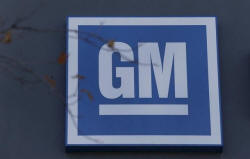|
GM, Isuzu end pick-up
truck tie-up; GM eyes more upscale market
 Send a link to a friend
Send a link to a friend
 [July 22, 2016]
By Norihiko Shirouzu and Naomi Tajitsu [July 22, 2016]
By Norihiko Shirouzu and Naomi Tajitsu
BEIJING/TOKYO (Reuters) - General
Motors Co <GM.N> and Isuzu Motor Co have agreed to stop working
together on developing midsize pick-up trucks made in Asia, as the
U.S. automaker focuses on the higher end of the market while the
Japanese firm sticks to selling vehicles for everyday commercial
purposes.
The automakers said on Friday they had cancelled their pick-up truck
deal struck in 2014, the latest under a joint product development
arrangement which began in 2006.
They added that separate collaboration agreements, including one for
commercial vehicles in the United States, remained intact.
"The direction each company wanted to take (for the vehicles) was
changing," an Isuzu spokesman said, adding that the Japanese truck
maker intended to continue making trucks to be used as workhorse
vehicles in markets including Australia, the Middle East, and Asia.
"Both GM and Isuzu agree that due to unique requirements for each
company, joint development of the next-generation midsize pick-up
truck for (GM) markets is no longer the optimal model for this
project," GM said in a statement.

Under the agreement, Isuzu, which specialises in light trucks and
commercial vehicles, had developed its D-Max pick-up truck,
marketing the model in Asia and beyond, focusing on markets
including Australia and the Middle East.
GM produced a version of its Colorado pick-up trucks and Trailblazer
SUVs for Asian and Australasian markets. The Asia-produced Colorado
pickup is different from a model sold under the same name in the
United States, which GM has developed on its own.
One GM executive said the "unique requirements" for GM are about the
strategic shift it began making last year in Southeast Asia where it
is now trying to focus more on competing in the higher end of the
region's truck and SUV markets.
[to top of second column] |

The GM logo is seen at the General Motors Lansing Grand River
Assembly Plant in Lansing, Michigan October 26, 2015.
REUTERS/Rebecca Cook

Despite the obvious benefits of collaborating on development such as sharing
costs, the executive, who declined to be named because he is not authorized to
discuss the move, said that GM had decided not to try to copy its Japanese
rivals in Southeast Asia where brands like Isuzu, Toyota Motor Corp and
Mitsubishi Motors Corp dominate.
"It doesn't make sense for us trying to copy the business strategy of the
Japanese rivals in Southeast Asia," the executive said.
GM's revamped strategy is especially pronounced in Thailand, where the automaker
is now launching sleeker pick-up trucks.
Isuzu and Mazda Motor Co earlier this month announced that Isuzu would
produce next-generation pick-up trucks for Mazda outside North America.
(Reporting by Norihiko Shirouzu in Beijing and Naomi Tajitsu in Tokyo; Editing
by Muralikumar Anantharaman, Stephen Coates and Adrian Croft)
[© 2016 Thomson Reuters. All rights
reserved.] Copyright 2016 Reuters. All rights reserved. This material may not be published,
broadcast, rewritten or redistributed.
 |